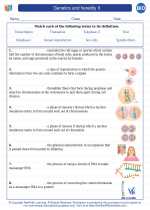Energy
Energy is the ability to do work. In the context of biology, it is essential for all living organisms as it is required for various metabolic processes and for carrying out life-sustaining functions.
Types of Energy
There are various forms of energy, including:
- Kinetic Energy: The energy possessed by an object due to its motion. Examples include the movement of muscles in organisms and the flow of water in rivers.
- Potential Energy: The stored energy that an object has due to its position or state. For example, the chemical energy stored in food molecules or the gravitational potential energy of an object at a height.
- Chemical Energy: Energy stored in the bonds of chemical compounds. This is the primary form of energy used by living organisms for carrying out cellular processes.
- Thermal Energy: The internal energy of an object due to the vibration and movement of its atoms and molecules. In living organisms, maintaining body temperature is crucial for metabolic reactions.
- Light Energy: The form of energy that allows us to see and is utilized by plants during photosynthesis to convert it into chemical energy.
- Electrical Energy: The flow of electric charge. Nerve impulses in organisms are an example of electrical energy used for transmitting signals.
Energy Flow in Biological Systems
In biological systems, energy flows through ecosystems and is transferred between organisms. The primary source of energy for most life on Earth is the sun. This energy is captured by plants during photosynthesis and is then transferred to other organisms through the food chain.
Study Guide
Here are some key points to focus on while studying the topic of energy:
- Understand the different forms of energy and be able to give examples of each.
- Learn about the laws of thermodynamics and how they apply to biological systems.
- Study the process of photosynthesis and cellular respiration, and how they are interconnected in the flow of energy.
- Explore the concept of energy pyramids and how energy is transferred between trophic levels in ecosystems.
- Understand the role of ATP (adenosine triphosphate) as the primary energy currency in cells.
- Consider the impact of human activities on energy resources and the environment.
By understanding the fundamental concepts of energy in biology, you will be better equipped to comprehend the interconnectedness of life processes and the role of energy in sustaining living organisms.
[Energy] Related Worksheets and Study Guides:
.◂Biology Worksheets and Study Guides High School. Genetics and heredity II
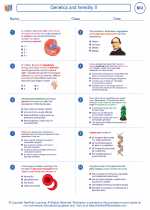
 Worksheet/Answer key
Worksheet/Answer key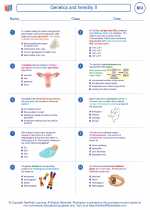
 Worksheet/Answer key
Worksheet/Answer key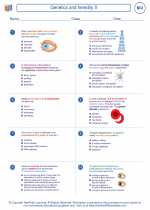
 Vocabulary/Answer key
Vocabulary/Answer key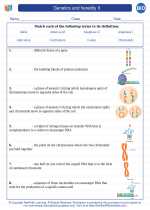
 Vocabulary/Answer key
Vocabulary/Answer key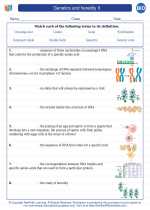
 Vocabulary/Answer key
Vocabulary/Answer key
 Vocabulary/Answer key
Vocabulary/Answer key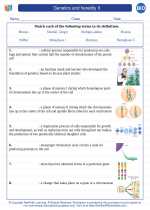
 Vocabulary/Answer key
Vocabulary/Answer key
 Vocabulary/Answer key
Vocabulary/Answer key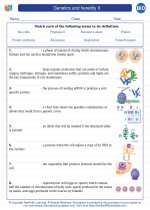
 Vocabulary/Answer key
Vocabulary/Answer key